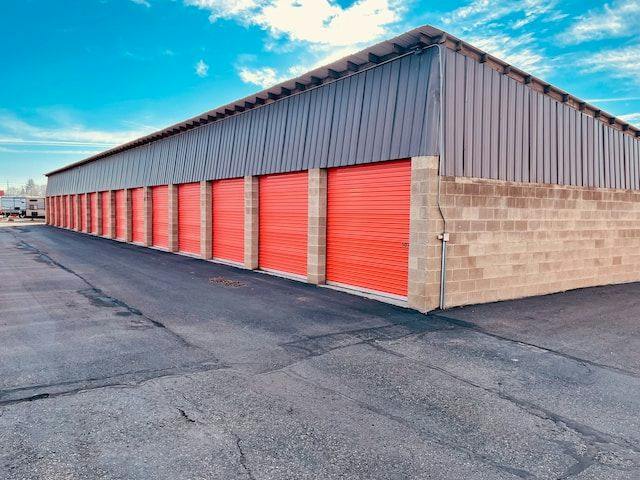Are you drowning in clutter? Is your living space shrinking under the weight of your belongings? Perhaps it’s time to consider renting the best Miami storage unit.
Whether you are moving to a new home, downsizing, or need extra space, a storage unit can be a lifesaver. There are a few essential things you need to know before you dive into the world of storage.
Read the article to explore 14 crucial factors you should know before renting a storage unit, ensuring you make an informed decision that meets your needs.
Determine Your Storage Needs
Before rushing to rent a storage unit, take stock of what you need to store. Assess the size and quantity of your belongings, as this will help you determine the appropriate unit size. This is the foremost important step because the unit size will decide the storage unit rent.
Choose the Right Unit Size
The range of storage unit sizes is wide. You can rent a small locker by paying a small amount or rent a large spacious room. If you are unable to decide how much space your accessories will take, you can ask the facility members.
Opt for a unit that offers enough room for your items while leaving space for easy access. The right size unit saves your rent budget and secures your belongings from damage.
Consider Climate Control
Consider a climate-controlled unit if you plan to store sensitive items like electronics, wooden furniture, or artwork. These units maintain stable temperature and humidity levels, protecting your possessions from harsh weather conditions.
Not all storage units are climate controlled, so if you are storing climate-sensitive items, determine whether the facility is climate controlled.
Research Security Measures
You are securing your valuable items, so security should be your top priority. Before renting a storage facility, you should look for its security features like surveillance cameras, on-site staff (guard), alarms, and gated access.
Understand Access Hours
Be aware of the facility’s access hours. Some storage units allow 24/7 access, while others have specific operating hours. Choose a facility that aligns with your schedule and provides convenient access to your belongings.
Insurance Coverage
Verify if your homeowner’s insurance policy covers items in storage or if you need to purchase additional coverage. Consider opting for insurance to protect your belongings against theft, damage, or natural disasters.
Check for Pest Control
Ensure that the storage facility has effective pest control measures in place. It is crucial to choose a facility that takes preventive measures. Otherwise, pests like rodents or insects can cause damage to your stored items.
Read the Rental Agreement Carefully
Read the rental agreement thoroughly before signing the contract for the storage unit. Pay attention to terms regarding payment schedules, notice periods, restrictions, and penalties that may apply. Also, read if there is any penalty for early cancellation and if there is a policy of auto-renewal. It is also necessary to check if there is a policy of price increases during the rental period.
Evaluate the Facility’s Cleanliness
Visit the storage facility in person to assess its cleanliness and overall maintenance. A well-maintained facility is necessary for storing your belongings in a clean and safe environment.
Assess the Location
Consider the location of the storage facility concerning your home or workplace. Opt for a facility that offers convenience and easy accessibility, minimizing travel time and expenses.
Compare Prices
Research and compare storage unit prices from different facilities. Keep in mind that the cost may vary based on factors such as unit size, location, and amenities. Balance your budget with your storage needs.
Take the time to research and compare storage unit prices from various facilities, including those that offer the WheeKeep service. Recognize that costs can fluctuate based on factors such as unit size, location, and available amenities.
Have an Exit Strategy
Lastly, plan for the end of your storage unit rental. Determine how long you’ll need the unit and whether you can end the contract early if required. Understand the procedures for moving out and retrieving your items.
What can you Store?
Furniture
Storage units are often used to store excess furniture, such as sofas, tables, chairs, beds, and dressers.
Appliances
If you have extra appliances or seasonal items like air conditioners, heaters, refrigerators, or washing machines, a storage unit can provide a secure place to keep them.
Boxes and containers
Storage units are perfect for storing boxes filled with personal belongings, documents, books, or items you don’t currently need but want to keep for sentimental or future use.
Clothing and personal items
If you have a large wardrobe, seasonal clothing, or personal items and don’t have space for them at home, a storage unit can be used to keep them safe and organized.
Vehicles
Some storage facilities offer units specifically designed for storing vehicles, such as cars, motorcycles, boats, or recreational vehicles (RVs).
Sports and recreational equipment
If you have sports equipment, camping gear, bicycles, or other recreational items you don’t use regularly, a storage unit can keep them until you need them.
Business inventory or documents
Small business owners often use storage units to store excess inventory, files, documents, or equipment if they don’t have space in their offices or stores.
Collectibles and antiques
Storage units can provide a controlled environment for storing valuable collectibles, antiques, artwork, or other fragile items.
Conclusion
Renting a storage unit can be a smart solution for decluttering and creating extra space. By keeping these 14 factors in mind, you can make an informed decision and choose the right storage facility for your needs. From determining the appropriate unit size to considering security measures and insurance coverage, each aspect plays a crucial role in ensuring the safety and accessibility of your stored items. So, take your time, do thorough research, and make a well-informed choice that will give you peace of mind as you embark on your storage journey.


Comments are closed.